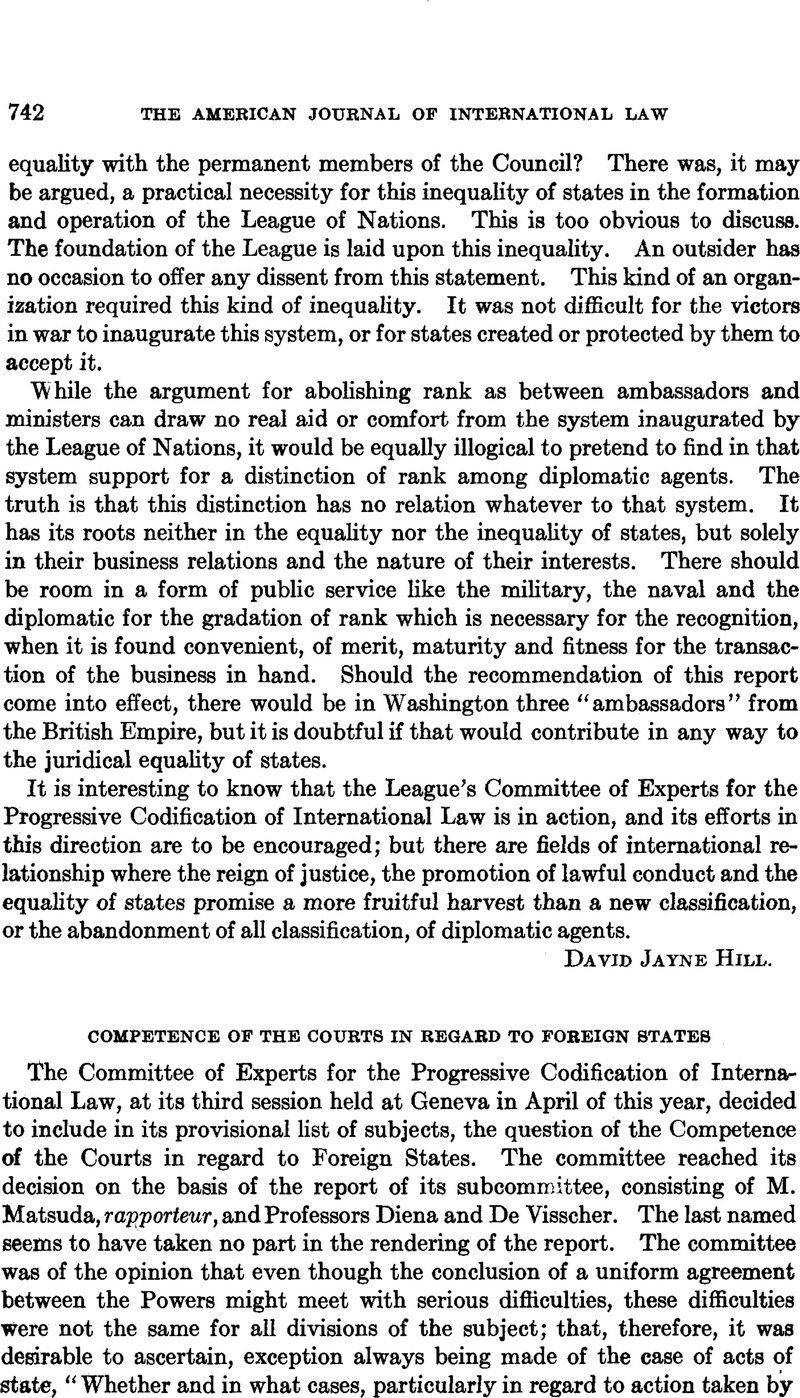Article contents
Competence of the Courts in Regard to Foreign States
Published online by Cambridge University Press: 04 May 2017
Abstract

- Type
- Editorial Comment
- Information
- Copyright
- Copyright © American Society of International Law 1927
References
1 Printed in Special Supplement to this Journal to appear later.
2 Jour, du Palais, 1849,1 ,166; Dalloz, 1849,1,9
3 Jour. Clunet, 1919, p. 747; 1920, p. 621.
4 L. R., 5 P. D. 197.
5 At page 207.
6 Gamer, in British Year Book of International Law, 1925, p. 142.
7 See the Porto Alexandre (1919), 89 L. J. P. 97; 1920, p. 30. Compania Mercantile Argentina v. U. S. Shipping Board (1924), 93 Law Jour. Rep. 816.
8 7 Cranch, 116. It is significant that Chief Justice Marshall emphasized the point that the doctrine was in derogation of the sovereignty of the heal state. Furthermore, a foundation for limiting the doctrine to state property engaged in public functions is laid by dictum: “ A prince, by acquiring private property in a foreign country, may possibly be considered as subjecting that property to the territorial jurisdiction” (p. 145). But the Supreme Court has recently refused to recognize the distinction and has extended the doctrine to state-owned ships in the merchant trade. Berizzi v. The Ptsaro, 1926, 271 U. S. 562.
9 The Attualita, 238 Fed. Rep. 909, at p. 911. The court seeks to distinguish the case from the Exchange by reason of the fact that no demand was made by the foreign executive for immunity. See also Garner, wt eit.; Nielsen, in this J ou rn a l , Vol. 13, pp. 17-20.
10 10 Revista di Diritlo Internationale, 1926, pp. 249-252.
11 259 Fed. Rep. 367.
12 (1921), 103 Dec. of the Reichsgericht, 274. As indicating the change of international public opinion, the court referred to the Hague Rules of Affreightment elaborated by the International Law Association and now adopted by legislation in a number of states. These rules are stated to be applicable to state-owned vessels engaged in the private carrying trade.The court did not consider the United States to have voluntarily waived immunity fromprocess by reason of the Shipping Act of 1910, nor by the Act of March 9,1920, authorizing suits in admiralty against the United States.
- 1
- Cited by




